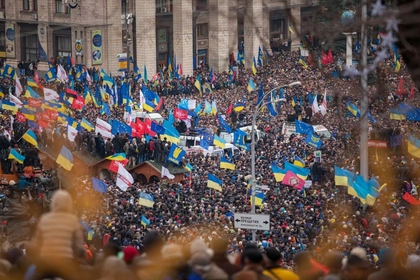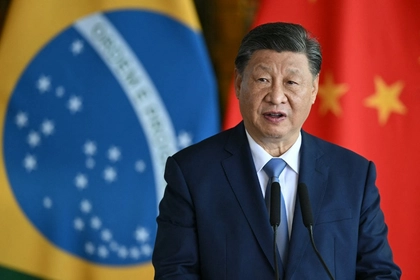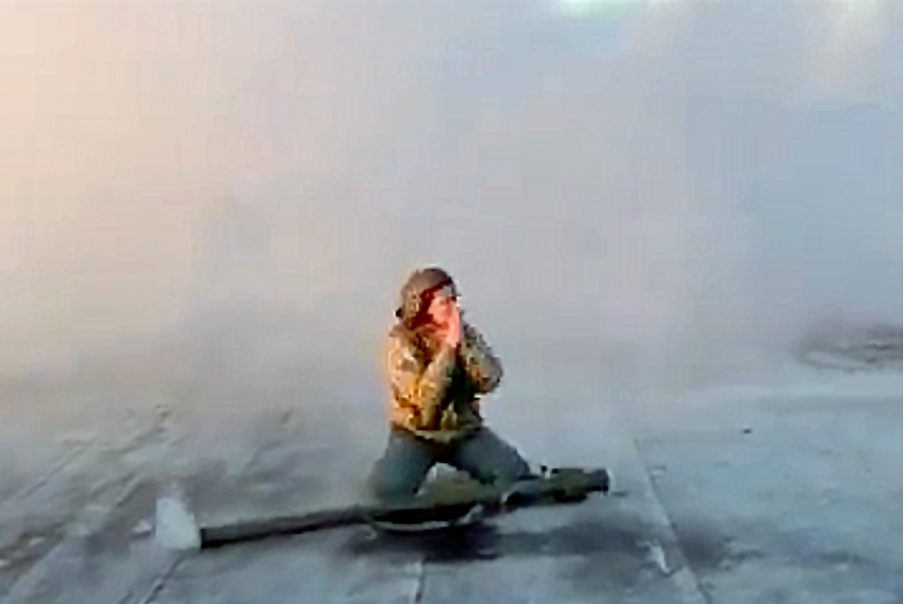Starting in 2014 and especially since 2022, Moscow has implemented an outrageous policy of large-scale Russian state-enforced displacement and deportation of Ukrainian civilians including thousands of unaccompanied minors and teenagers.
One of the Russian invasion’s aims since 2022 has been to capture and then russify large numbers of Ukrainian citizens in order to prop up Russia’s declining population. This aim may be as important to Moscow as the annexation of Ukrainian territory.
JOIN US ON TELEGRAM
Follow our coverage of the war on the @Kyivpost_official.
Child displacement and deportation has been taking place in Ukraine’s occupied Crimea and Donbas since 2014. Yet, it did not become widely known until 2022 when the numbers of such illegal transfers rose sharply.
Between Feb. 24, 2022 and today, Russia had displaced or deported at least 19,546 unaccompanied Ukrainian children.
This is an official figure provided by the Ukrainian government’s ‘Children of War’ portal. However, this statistic includes only those children on whom information has been provided to the government by relatives, witnesses or local authorities regarding a child’s deportation to Russia or forcible transfer within the Russian-occupied parts of Ukraine and where such evidence is already undergoing verification.
Presumably, the real figure is considerably higher.
They include ‘children of war’ in a more literal sense, i.e. minors or juveniles who for different reasons have been left alone during the fighting. Unaccompanied children have been collected by Russian officials and activists from the front line or occupied Ukrainian territories.

Russia Strikes Ukraine With Intercontinental Ballistic Missile, Air Force Reports
Some children’s parents or relatives have been persuaded by Russian agents (officials, activists, collaborators, etc.) to send their offspring to Russian summer camps or other recreational centers. After an agreed recreation period, many have been kept for longer and/or transported elsewhere.
As many as 3,855 underage orphans and other minors living in Ukrainian children’s homes had, according to the Regional Center for Human Rights (RCHR), been deported or displaced by September 2023.
Some Ukrainian children have been separated from their parents in so-called “filtration camps” along the front line.
Most of these illegally transferred Ukrainian non-accompanied children have close relatives or other legal guardians. Some of the latter live in the government-controlled areas of Ukraine whereas others are themselves externally displaced and live abroad.
In the vast majority of cases, neither the relatives nor any relevant Ukrainian governmental authorities have given explicit permission for Russia’s permanent transfers of these unaccompanied children. Certain children’s camps in Russia are advertised as “integration programs” for Ukrainian children.
Various new legal acts were adopted by Russia in 2022-2023 to facilitate the russification and assimilation of Ukrainian children. These revisions have led to a situation in which, according to a report from the Organization for Security and Co-operation in Europe, children “have virtually no say in the whole process [of citizenship change] and the same is true for their parents or other (original) legal guardians in cases, where children are separated from them.”
Granting of Russian citizenship entitles adopted children to “social guarantees,” in other words access to governmental subsidies. This creates financial incentives for potential adopters. Under the Russian Family Code, adopted children are equal in status to their parents’ own children allowing a change of the name, surname and the date and place of birth of the child. This makes it difficult to establish Russia-adopted Ukrainian children’s status and their relatives in Ukraine.
A range of Russian governmental bodies participate in the deportation and adoption process, with Children Commissioner Maria Lvova-Belova – wanted by the ICC – playing a coordinating role. Dozens of Russian federal, regional and local offices are implementing the government’s displacement and russification program. They are engaged in logistic coordination; fundraising; providing supplies; managing children’s camps; as well as promoting the russification campaign within Russia and the occupied areas of Ukraine.
Ukrainian officials have made numerous appeals to Russia. In March 2023, Ukraine’s Vice Prime Minister Iryna Vereshchuk asked Moscow “to immediately hand over the lists of all [Ukrainian] orphans and children deprived of parental care” and under Moscow’s control.
Since 2022, Ukrainian criticism has become increasingly targeted at international organizations tasked with preventing and reversing forcible transfers of children.
Oddly, instead of preventing and reversing forcible transfers, the Belarusian Red Cross Society, until recently a member of the International Federation of the Red Cross (ICRC), participated in the deportation of Ukrainian children to Belarus.
The ICRC, Special Representative of the UN Secretary-General for Children and Armed Conflict, and UN Children's Fund (UNICEF) have been asked to intensify their work on the identification and return and reunification of abducted children.
As child deportations continue until today and only very few of them have been reversed, the Ukrainian government has launched various initiatives. These include the Child Rights Protection Center; Bring Kids Back UA program; as well as Coordination Council on Child Protection and Safety. The Save Ukraine Foundation, SOS Children’s Villages and RCHR are among the Ukrainian NGOs advocating or managing the return of deported children. However, only around 400 children of the so far almost 20,000 officially registered displaced or deported children have been returned to government-controlled territory within Ukraine.
International public awareness of Russia’s mass deportation of children has risen only slowly. On July 1, 2022, global human rights organizations called for a moratorium on inter-country adoptions of Ukrainian children in line both with the Ukrainian government’s approach and international law.
By early March 2023, this appeal had been signed by 43 NGOs. In September 2022, the European Parliament adopted a resolution calling upon Russia, inter alia, to:“immediately cease […] all forced transfers of children to the Russian-occupied territories and the Russian Federation, as well as any inter-country adoptions of children transferred from Ukraine’s entire internationally recognized territory; […] repeal all legislation facilitating the adoption of Ukrainian children; […] immediately provide information about the names, whereabouts and well-being of all Ukrainians detained or deported, and allow and enable the safe return of all Ukrainian civilians, including children.
In a February 2023 resolution, the EP went further and stated that transferring children from one group to another constitutes the crime of genocide.
On June 1, 2023, International Children’s Day, 23 foreign diplomatic missions in Ukraine issued a joint statement on Russia’s forced deportation of Ukrainian children which concluded: “We will hold Russia accountable for its illegal and barbaric actions in Ukraine!”
Despite comprehensive condemnation, thousands of unaccompanied Ukrainian minors remain in Russia or Russia-occupied territory without their legal guardians.
The longer they stay away from their homes and families, the more painful, complicated and questionable their future repatriation becomes. Until more responsible governments come to power in Russia and Belarus, massive multilateral and multidirectional action is needed to affect swift and tangible change.
National and transnational actors must move from verbal interventions to result-oriented action.
The RCHR has suggested that, instead of merely mentioning Russia’s mass deportation of children in generic humanitarian or political declarations, official ad hoc documents specifically demanding the repatriation of Ukrainian children should be adopted and publicized. The UN General Assembly, further international assemblies and as many national parliaments as possible should do so.
Furthermore, the RCHR has suggested that agreements between Ukraine and willing partners should be concluded on cooperation in repatriation; the list of currently sanctioned Russian persons involved in deportations should be expanded and means of influencing already sanctioned figures be extended; new arrest warrants modelled on those against Putin and Lvova-Belova should be issued by the ICC; new crimes should be added to those listed in the existing warrants; and frozen Russian assets should be confiscated and reprofiled for the needs of children who have become victims of illegal deportation and forced displacement.
Limitations on Russian officials involved in the deportation and assimilation of Ukrainian children should become a prominent feature in EU sanctions packages. EU sanctions related to the deportation and assimilation of Ukrainian children should be extended to Russian NGOs, companies, schools, universities, professional organizations and so on participating – often openly and even demonstratively – in the deportation and russification efforts. Further, RCHR suggestions include: expanding lists of confirmed and presumably deported children; transferring these lists for verification to Russia via relevant international organizations or third states; identifying locations within and outside Ukraine for the temporary placement of returned children to Ukraine with their relatives or other authorized caretakers.
A complicated challenge is how to alert still largely ignorant parts of the international community to the scale, gravity and tragedy of Russia’s child removal policies.
While many interested academics, politicians and diplomats in the West are well-informed, acquaintance with this scandalous situation among “ordinary” citizens of European and other countries remains limited.
This gap needs to be closed with particular focus on nations in the Global South where Kremlin narratives about the Russo-Ukrainian War are popular. Special fellowships, prizes, competitions, tours, meetings, workshops and so on for journalists, editors, bloggers, publishers, pundits, artists and so on should lead to the production of suitable analytical, journalistic and artistic texts, podcasts as well as video material which is more easily accessible and disseminated to the general public.
Moscow’s aggressive child removal policy is an important aspect of Russia’s aggression against Ukraine that illustrates its character as a demographic and not only geographic conquest. The Kremlin’s so-called “special military operation” is a national-cultural and not only military-political project.
Disclosing details of Moscow’s horrendous child displacements and deportation policies in Ukraine since 2014 is not only a moral task. It can also help to better understand the nature of Russia’s genocidal attack and why it is necessary to stop it as soon as possible.
You can also highlight the text and press Ctrl + Enter






